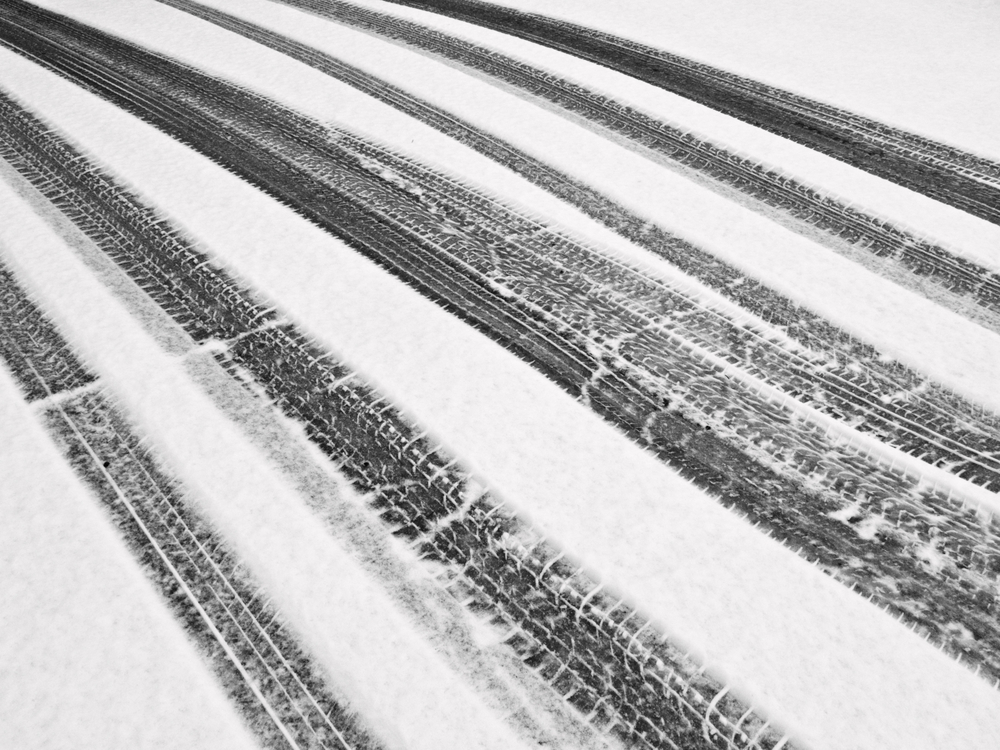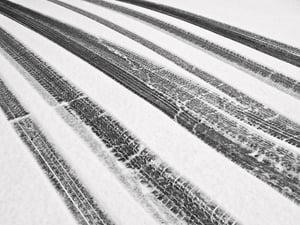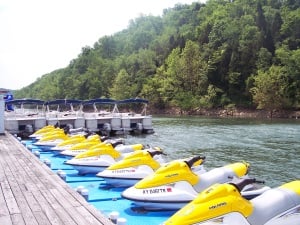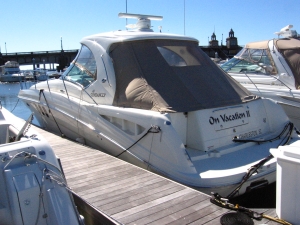1 min read
Winterizing a jet ski so it is ready for you in the spring
Unless you live in Florida, chances are you’re not going to be doing a lot of boating during the winter. And that goes double for personal watercraft...

The great thing about the internet is that there's so much useful information out there, on almost any topic you want. And there are blogs like this one for talking about the topics that interest you. If you have an RV, like to camp or travel, and live anywhere other than Bell's home state of Florida, you might find that it's getting time to think about putting your RV up for the winter.
 But don't just shut it down and put a cover on it. You spent a lot of money on your RV and there are things you need to do to make sure it stays happy and healthy during its cold winter storage period, so it will be ready when you take it out for use in the spring.
But don't just shut it down and put a cover on it. You spent a lot of money on your RV and there are things you need to do to make sure it stays happy and healthy during its cold winter storage period, so it will be ready when you take it out for use in the spring.
Winterizing is not a step you want to skip if you’re storing your RV in cold weather. Not following these steps could cause big problems. Just ask RV owners in cold weather places like Montana. They'll tell you that taking shortcuts here can leave you with big-time problems like broken pipes and water damage, even damage from condensation. If you leave liquid in the drain lines then those can crack in the cold. And there are things like damage to the water pump, toilet and sink valves, and drain traps. Winterization really is a case where you can pay me now or pay me later.
Web sites like koa.com offer great tips on winterizing an RV. Here are the best of the recommendations. Keep in mind that these are general recommendations and your specific RV manufacturer may have other recommendations (or even different one) that they recommend you follow. Make sure you know what those are and adhere to those above anything else.
Doing something like this right starts with the right preparation, so make sure you have a few things that you will need:
Alright, let's get started. Here are some things you will have to do, to do this right.
Drain and back flush the water – you don’t want water freezing in any of the lines over the winter. Professionals like Camping World recommend that you back flush the water system to ensure you get all of it out. The process for doing all of this is a multi-step one, and if you’ve never done it before, it can seem like a lot of steps. Luckily, there are plenty of online resources and even YouTube videos that will guide you through the process, step by step. The general steps would include:
Add RV-specific antifreeze in, then make sure it comes out all of the faucets – never put automobile antifreeze in your RV’s water system. The antifreeze made specifically for RV systems is non-toxic and something you can pick up at any RV-supply store. Most RVs will need 2-3 gallons.
Again, check your manufacturer recommendations on the exact process they want you to use, but the conventional process for doing this will typically include the following steps:
Practice moisture control on the interior – it’s a good idea to put something like a bag of Damp-Rid inside the RV to absorb moisture from the air and keep mildew problems at bay.
Spray for bugs – insects can get in the weirdest places, especially spiders. If you use propane appliances, you may know that spiders are attracted to the scent of propane. Technically, they’re attracted to the scent of the mercaptans used to odorize propane so you know it’s there. So cap off the ends of any propane lines leading to the outside. And cover the stove burners in plastic to keep the bugs out.
Get rid of animal temptations - according to many RV insurance companies, animal infestations rank solidly in the top 5 most common RV insurance claims. Rodents love to get into RVs, build nests, chew through wires. And if you don't have Comprehensive insurance coverage for your RV, you'll be out of luck and out of pocket with the expense.
The best thing you can do to prevent this is make sure you get all the leftover food out of your RV. This would seem to be common sense, but common sense isn't so common these days. The only food you should leave in your RV is food in cans or sealed bottles.
The same goes for standing water. Pay special attention to your ice maker, if you have one. Many RV owners forget that ice makers can harbor enough standing water to attract insects.
Another thing people forget is that they should turn off their propane. Many insects are attracted to the smell of the mercaptran odorant that's added to the propane gas. And it doesn't take much to do it - insects can detect and swarm to tiny amounts of propane that you couldn't hope to detect with your nose.
Check the bottom of your RV and fill in any holes with something like steel wool or expandable spray foam. Consider using moth balls and dryer sheets to deter flying insects. Some people swear by using some kind of mint oil on the outside of their unit, because rodents supposedly don't like mint. You should also consider installing insect screens on the outside over the openings for the refrigerator, furnace and hot water heater. These can be especially effective at keeping insects and rodents out.
Speaking of those, resist the temptation to use poison to get rid of rodents and small animals. Not because we have anything against that, but you're more likely for a rodent to get the poison and crawl up into some place inside your RV where it will die and stink up your RV for the winter. Nobody wants that.
Editor's Note: This post was originally published in November 2014 and has been updated for accuracy.

1 min read
Unless you live in Florida, chances are you’re not going to be doing a lot of boating during the winter. And that goes double for personal watercraft...

Now that Labor Day has passed, boating season is coming to an end while cold weather looms on the horizon. The engine is the most expensive part of...

Labor Day has come and end, signaling the end of summer and the time to start thinking about packing the warm weather toys up for the winter. This...